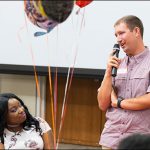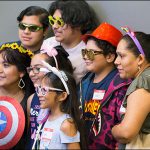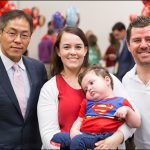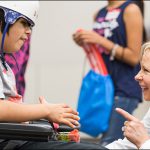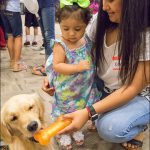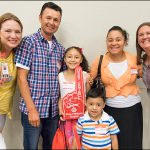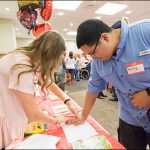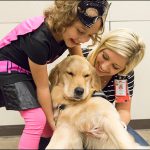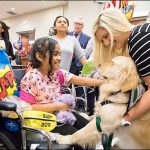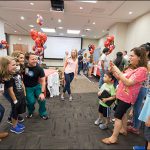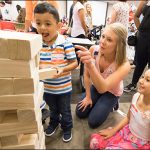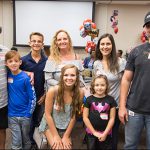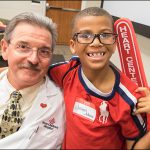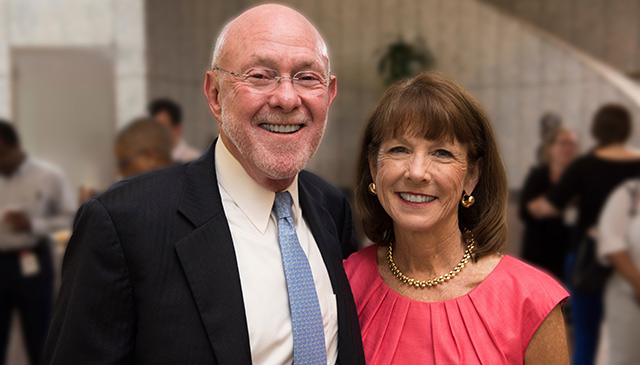 Texas Children’s Cancer and Hematology Centers is pleased to announce Dr. Susan Blaney has stepped into the role of director, effective July 1, while Dr. David Poplack transitions to serve as associate director of the Cancer and Hematology Centers and director of Global HOPE (Hematology-Oncology Pediatric Excellence), an outreach program aimed at improving pediatric cancer treatment in sub-Saharan Africa.
Texas Children’s Cancer and Hematology Centers is pleased to announce Dr. Susan Blaney has stepped into the role of director, effective July 1, while Dr. David Poplack transitions to serve as associate director of the Cancer and Hematology Centers and director of Global HOPE (Hematology-Oncology Pediatric Excellence), an outreach program aimed at improving pediatric cancer treatment in sub-Saharan Africa.
Blaney has extensive experience in clinical and translational research with a focus on the development of new treatment strategies for children with brain tumors and other refractory cancers and is a former member of Poplack’s team at the National Institutes of Health.
Blaney joined Texas Children’s in 1995 and has held the role of deputy director of Texas Children’s Cancer and Hematology Centers and executive vice chair of the Department of Pediatrics at Baylor College of Medicine for 10 years. She is vice chair of the Children’s Oncology Group, an international clinical trial cooperative group of more than 200 children’s cancer programs across North America that is supported by the National Cancer Institute. Blaney is also a co-editor of the next edition of the leading textbook in the field of pediatric oncology and a co-editor of one of the leading textbooks for pediatrics.
“I am extremely excited about this new role and opportunity. I can’t think of a better program or place to be than Texas Children’s, and am looking forward to the incredible future of our Centers,” Blaney said. “The Cancer and Hematology Centers provide outstanding, state-of-the-art family-centered care. The Centers’ faculty are nationally and internationally recognized leaders and experts in the field. They are performing cutting edge laboratory-based and clinical research to continue to improve the outcomes for children with cancer or hematologic disorders.”
Poplack said he is thrilled his friend and colleague of more than three decades will succeed him as the next Director of Texas Children’s Cancer and Hematology Centers and that he is confident the Centers will continue to grow and prosper under her leadership.
“Susan has served as the deputy director of Texas Children’s Cancer and Hematology Centers for 10 years and has been closely involved in every aspect of oversight of our Centers,” he said. “I can think of no one in the country more qualified and capable of succeeding me and continuing our relentless pursuit of finding a cure for all children with cancer and blood disorders.”
Under Poplack and Blaney’s leadership, Texas Children’s Cancer and Hematology Centers have grown exponentially – from seven faculty members, 42 employees, 4,000 square feet of laboratory space and less than $1 million in annual external grant funding in 1993 to nearly 200 faculty members, 1,000 employees, 100,000 square feet of laboratory space and $50 million in annual external grant funding.
As the largest pediatric cancer and hematology program in the nation, the Centers are a global powerhouse in pediatric cancer and hematology treatment, research, and professional education. Texas Children’s has internationally-recognized programs in immunotherapy, cell therapy, personalized medicine, developmental therapeutics, rare cancers, neuro-oncology, long-term survivorship, and sickle cell disease. There are also premier programs in musculoskeletal tumors, neuroblastoma, liver tumors, blood and clotting disorders, and many others.
Blaney said that under her leadership the operation of the Cancer and Hematology Centers will continue to focus on its primary mission, which is to provide personalized, high-quality, family-centered care to children, adolescents and young adults with cancer and blood disorders; to discover and implement innovative laboratory research and treatment advances aimed at curing and preventing childhood cancer and blood disorders; and to provide world-class training and education for current and future leaders in the field.
To learn more about Texas Children’s Cancer and Hematology Centers, click here.


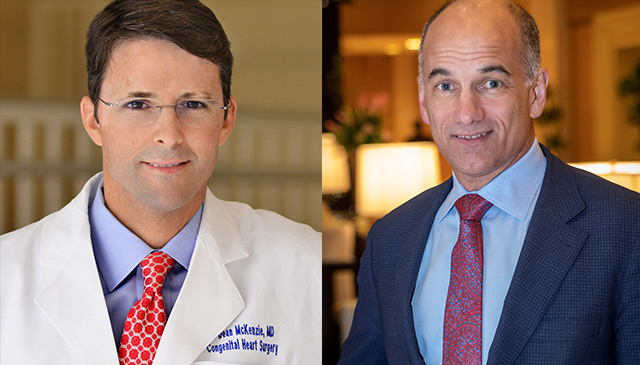 Two congenital heart surgeons will be joining the Texas Children’s Heart Center® team this fall. Dr. Christopher Caldarone will serve as the chief of congenital heart surgery and Dr. E. Dean McKenzie will serve as a congenital heart surgeon.
Two congenital heart surgeons will be joining the Texas Children’s Heart Center® team this fall. Dr. Christopher Caldarone will serve as the chief of congenital heart surgery and Dr. E. Dean McKenzie will serve as a congenital heart surgeon.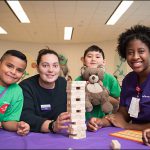

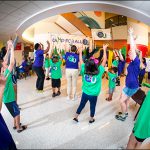
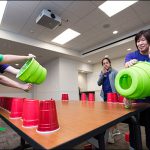
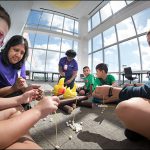
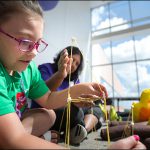
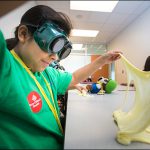

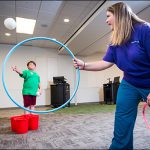
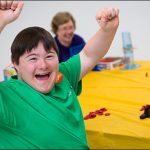
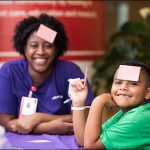
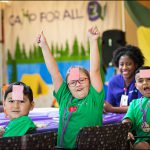


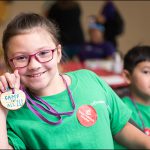
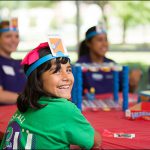
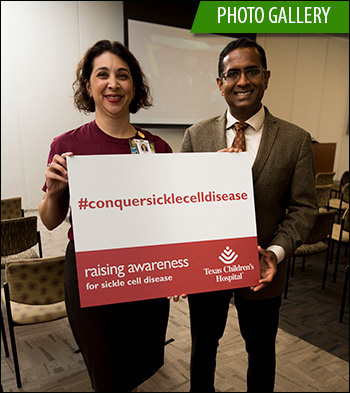 For the second consecutive year, Texas Children’s Sickle Cell Center hosted a celebration in honor of World Sickle Cell Day. On June 19, sickle cell patients, families, physicians, researchers and others joined forces to raise awareness about sickle cell disease, an inherited red blood cell disorder that affects about 100,000 Americans and many more worldwide.
For the second consecutive year, Texas Children’s Sickle Cell Center hosted a celebration in honor of World Sickle Cell Day. On June 19, sickle cell patients, families, physicians, researchers and others joined forces to raise awareness about sickle cell disease, an inherited red blood cell disorder that affects about 100,000 Americans and many more worldwide.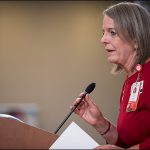
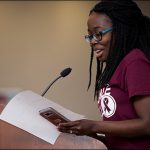
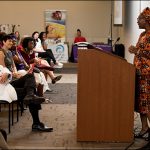
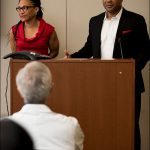
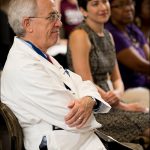

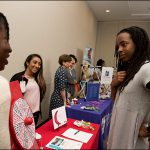
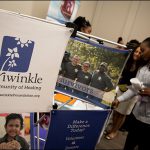
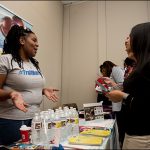
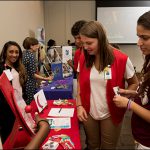
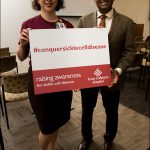
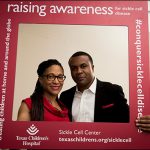
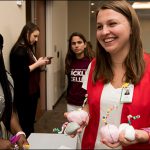

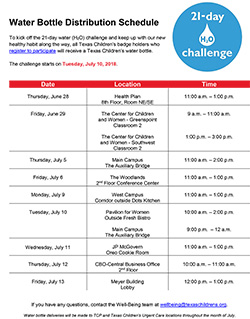
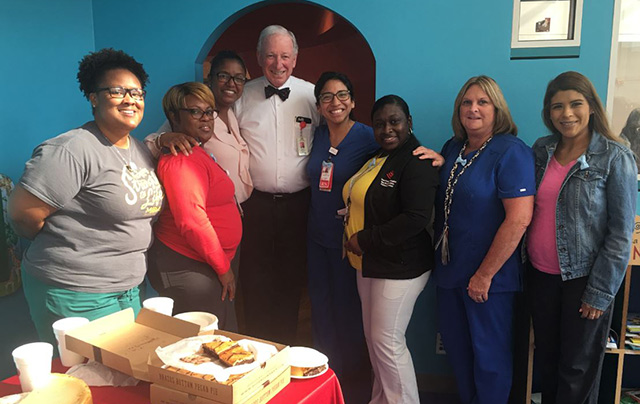 Texas Children’s Neuroscience team recently held a special retirement celebration for long-time neurologist and Blue Bird Circle Clinic Medical Director Dr. Robert Zeller.
Texas Children’s Neuroscience team recently held a special retirement celebration for long-time neurologist and Blue Bird Circle Clinic Medical Director Dr. Robert Zeller.

